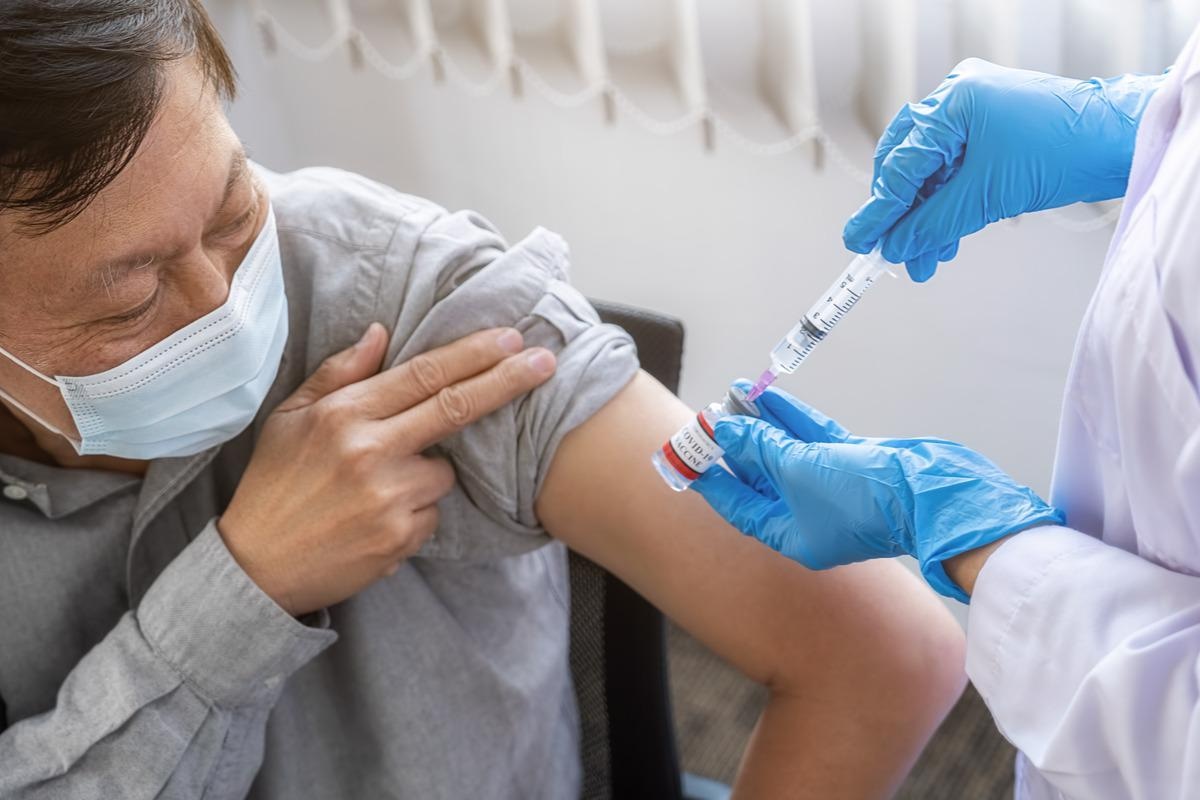The researchers found that the two-dose vaccine regimen with a messenger ribonucleic acid (mRNA)-based coronavirus disease 2019 (COVID-19) vaccine boosted antibody levels, albeit for a short time span.
 Study: High but Short-lived anti-SARS-CoV2 neutralizing, IgM, IgA, and IgG levels among mRNA-vaccinees compared to naturally-infected participants. Image Credit: PIC SNIPE/Shutterstock
Study: High but Short-lived anti-SARS-CoV2 neutralizing, IgM, IgA, and IgG levels among mRNA-vaccinees compared to naturally-infected participants. Image Credit: PIC SNIPE/Shutterstock

 *Important notice: medRxiv publishes preliminary scientific reports that are not peer-reviewed and, therefore, should not be regarded as conclusive, guide clinical practice/health-related behavior, or treated as established information.
*Important notice: medRxiv publishes preliminary scientific reports that are not peer-reviewed and, therefore, should not be regarded as conclusive, guide clinical practice/health-related behavior, or treated as established information.
Background
A mass vaccination drive began in December 2020 in Qatar, and by February 2022, Qatar had fully vaccinated around 88% of its population over 12 years of age. Despite widespread vaccination, the country witnessed two COVID-19 waves due to SARS-CoV-2 Alpha, Beta, and Delta variants between January and June 2021.
Yet again, there was an unprecedented surge in the number of COVID-19 cases between December 2021 and January 2022. During this time, Qatar hit an all-time high number of new daily COVID-19 cases. During this time, their public health officials realized that protecting the vaccinated as well as naïve and naturally infected population against the new SARS-CoV-2 variants was tedious and needed immediate attention.
There is very little data to define an antibody titer threshold that is adequate to protect an individual from SARS-CoV-2 infection. Moreover, the United States Federal Food and Drug Administration (FDA) has not approved a single serology test, which may indicate whether a person is protected from COVID-19 or not. Overall, there is a dearth of evidence for SARS-CoV-2 infection-induced immunity compared to vaccine-induced immunity.
About the study
In the present study, researchers assessed the antibody responses of Qatar's population, focusing specifically on vaccination naïve (VN) and naturally infected (NI) individuals. Qatar used two FDA-approved mRNA-based vaccines, BNT162b2 and mRNA-1273, for their mass vaccination programs.
The 100 VN study participants had received a two-dose regimen of BNT162b2 or mRNA-1273. On the other hand, the NI group had 40 subjects who were unvaccinated but naturally infected at least once with COVID-19. The team collected phase I blood samples from the VN group at 1.4 months and phase II samples at 5.3 months after the second vaccine dose. For the NI group, the sample collection time points for phase I and phase II were ~1.7 months and 5.2 months, respectively, after contracting COVID-19.
The researchers used the plasma of all the study participants for serological testing. Additionally, prior to sample collection, the researchers gathered demographic and all COVID-19-related information from the study participants.
The team performed serology tests to determine the presence of SARS-CoV-2 neutralizing antibodies (nAbs) in the obtained samples. First, they detected nAbs with a World Health Organization (WHO) conversion factor of one arbitrary unit (AU)= 3.31 IU/mL. Next, they detected antibodies to the receptor-binding domain (RBD) of the SARS-CoV-2 spike (S) protein, anti-S-RBD-immunoglobulin G (IgG). It had a WHO standardization factor of 1.15 binding antibody units (BAU)/mL. Likewise, they assessed anti-S-RBD-IgM and anti-S1-IgA levels in serum samples from individuals of the VN and NI groups.
Further, the team used an architect automated chemiluminescent assay to test the samples for the previous infection. The assay detected SARS-CoV-2 anti-nucleoprotein (anti-N) IgG antibodies, and positive anti-N results indicated previous exposure to SARS-CoV-2. The team excluded such samples from the VN study group.
Regarding statistics, the researchers summarized all continuous variables using geometric mean titers (GMTs) and 95% confidence intervals (CIs). They made scatter plots on which the horizontal bar line and the error bar line showed the GMTs and 95% CIs, respectively.
Lastly, the team performed Wilcoxon rank-sum test for pairwise group comparisons and Mann-Whitney U to depict the variations between the independent samples. They also used the Shapiro–Wilk normality test to normalize the collected data.
Study findings
Compared to natural infection, mRNA vaccination elicited anti-S-RBD- IgG and anti-S1-IgA antibodies in significantly high amounts. Within 23 weeks, this boost in antibody levels diminished by two to six-fold. Although natural infection initially elicited anti-SARS-CoV-2 antibodies in lesser quantities they remained steady and declined by around one to two-fold 22-weeks post-SARS-CoV-2-infection. Notably, anti-S1-IgA levels initially were three-fold higher in the VN group than in the NI group, i.e., phase I. However, by the end of the follow-up period, anti-S1-IgA levels became similar in the two groups.
Previous studies have fetched similar results and demonstrated that IgA antibodies dominate the early immune response to SARS-CoV-2 in unvaccinated subjects. In fact, a recent report indicated that individuals having IgA antibodies never contract COVID-19, while individuals with both IgG antibodies and T cells contract the infection. It is worth noting that IgA antibodies against SARS-CoV-2 S antigens persist for around three months in salivary and nasal secretions. Therefore, it is important to assess anti-S1-IgA antibodies after vaccination, just like IgG and IgM antibodies.
Conclusion
According to the authors, it is the first-ever study to comprehensively evaluate the levels of anti-S1-IgA antibodies in vaccinated individuals, along with anti-S-RBD-IgG and anti-S-RBD-IgM levels. The study findings demonstrated the extent of the waning of each anti-SARS-CoV-2 nAb, which could help policymakers make informed decisions regarding vaccination strategies.

 *Important notice: medRxiv publishes preliminary scientific reports that are not peer-reviewed and, therefore, should not be regarded as conclusive, guide clinical practice/health-related behavior, or treated as established information.
*Important notice: medRxiv publishes preliminary scientific reports that are not peer-reviewed and, therefore, should not be regarded as conclusive, guide clinical practice/health-related behavior, or treated as established information.
Journal reference:
- Preliminary scientific report.
Haissam Abou Saleh, Bushra Abo Halawa, Salma Younes, Nadin Younes, Duaa Al-Sadeq, Farah Shurrab, Na Liu, Hamda Qotba, Nader AlDewik, Ahmed Ismail, HADI M. YASSINE, Laith J Abu-Raddad, Gheyath Nasrallah. (2022). High but Short-lived anti-SARS-CoV2 neutralizing, IgM, IgA, and IgG levels among mRNA-vaccinees compared to naturally-infected participants. medRxiv. doi: https://doi.org/10.1101/2022.05.08.22274817 https://www.medrxiv.org/content/10.1101/2022.05.08.22274817v1